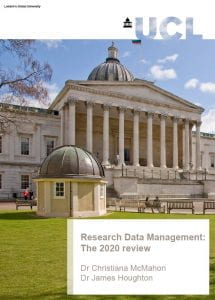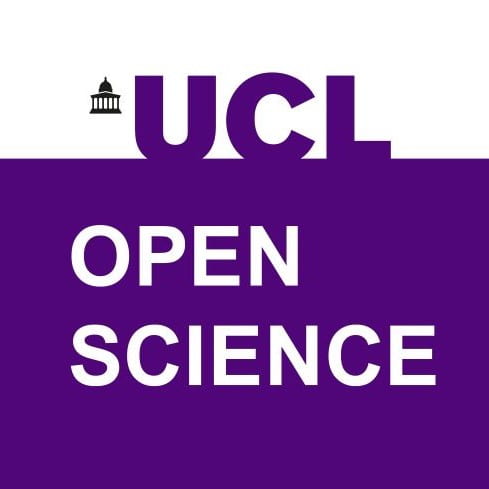OA Week – A brief introduction to Creative Commons Licences
By Kirsty, on 28 October 2021
It is impossible to consider Open Licensing options without looking closely at Creative Commons. They are widely used in licensing scholarly papers and books, and are flexible enough to cover a wide range of works, such as photographs, music and even software. Among the advantages of Creative Commons licences are:
- Easily recognisable symbols to show which licence has been applied
- Each licence is explained briefly on the Creative Commons website but is also backed up by a full licence document which is likely to be recognised by a court of law.
- Licences are updated and supported by the Creative Commons organisation.
The CC BY Licence (attribution licence)
The premise with all CC licences is that authors choose them because they want to make their work available for reuse with minimum formality or restrictions. The simplest and most generous Creative Commons licence is the CC BY or attribution licence.
The requirements are: Correct attribution of author (or authors) and title, reference to and a link to the licence and a link to the original source (where reasonably practicable). There are no restrictions on commercial reuse or derivative versions. The work can be used in a mash-up, translated into other languages for example or recreated in a different medium. You must however indicate where changes have been made.
It may seem that the author (generally the original copyright owner) is giving up a great deal of control by applying a CC BY licence to their work and the licence is certainly broad. On the other hand:
- The author retains ownership of copyright. In traditional journal and book publishing the author is often asked to assign their copyright, leaving them with no control over the reuse of their paper. The author of a CC licensed work may go on to reuse it as they wish
- The attribution requirement ensures that the author is recognised as such and credited using the wording of their choice.
- Using the CC BY licence does more to maximise the possibilities for reusing the work than the more restrictive alternatives. That has advantages if you want your work to be as widely known as possible.
Other CC licences
The other licences offer more restrictive options for authors who are concerned about some possible reuses of their work.
- The CC BY-NC Licence can be used by authors who don’t want their work to be used for commercial purposes, although they wish to encourage its reuse in a non-commercial environment.
- The CC BY-ND Licence provides an alternative for authors who want their work to be reproduced only in its original form, not reworked, simplified, translated etc.
- The CC BY-SA or “Share alike” licence stipulates that if their work is used to create a further derivative work, then if the new work is made available to the public, it must be made available under the same licence, CC BY-SA. This would appeal to those authors who see this as a way of furthering open access by ensuring any works which build upon their original work are similarly licensed for reuse. It can be compared to the “Copy left” licences which are commonly used to licence open source software.
The restrictive elements NC, ND, and SA can be combined in the most restrictive Creative Commons licences, such as CC BY-NC-ND to offer alternatives for those with multiple concerns who nevertheless wish to encourage reuse of their work and make it available in an open access environment.
Choosing a CC Licence for your work
Deciding which of the licences to choose may not be entirely a matter of personal choice. If your research is being funded by an external organisation, the funder may specify which licence should be used when publishing the outcomes of that research. It is important to look closely at the terms of your funding agreement and the funder’s policies to ensure you are compliant. There is more information and links to funders’ policies on UCL’s open access webpages.
The more restrictive CC licences may provide an answer if for example you are concerned about your work being reused for profit, but the boundaries of “commercial” and “non-commercial” may not be obvious on every occasion. Similarly, people may hesitate over what is or is not a “derivative work.” You may be discouraging reuse unnecessarily.
Although one of the pluses of Creative Commons licences is the author’s clear retention of copyright, an important point to bear in mind is that you can’t retract a CC licence once offered. You can certainly take the work down from your website but you cannot prevent anyone reusing your work under the relevant licence once it has been made available under the licence. Failure to appreciate that has resulted in at least one court case concerned with reuse of an image.
The CC0 Licence
This is an alternative to the CC BY licence. The CC0 licence makes it clear that the licensed work can be reused without any attribution. It is sometimes described as placing your work in the “public domain,” comparable to works which are out of copyright. Using the term “licence” is a little misleading. It is not so much a licence to reuse a work, more a way of removing any copyright restrictions in your own work. This can be appropriate for datasets where the researchers wish to maximise the possibility of reusing their data, unhindered by copyright. For example, it may be thought that the attribution requirement of the CC BY licence would inhibit text and data exercises because it would be difficult to fulfil while carrying out Text and Data Mining (TDM).
Reusing CC licensed material
The CC licences are quite flexible. For example, there is usually more than one acceptable way of incorporating the attribution information. Although CC licensed works are available for reuse, it is important to bear in mind that you must make a reasonable effort to comply with the licence terms. Otherwise, you may be pursued by the copyright owner. One should take as much care as when reusing any other copyright-protected material.
 Close
Close









